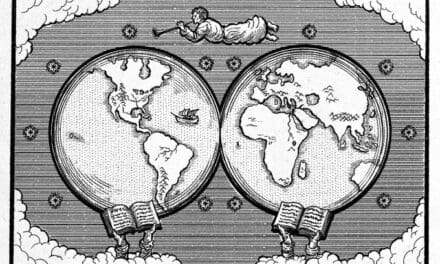Let’s talk about the English translations of the Bible verse John 20:17.
We all know the phrase, “touch me not.” It is a well known verse.
“Touch me not; for I am not yet ascended to my Father: but go to my brethren, and say unto them, I ascend unto my Father, and your Father; and to my God, and your God.”
Are you aware that this is most likely a bad translation and there are others out there that insist that Jesus did NOT tell Mary to not touch him, but more likely told her to stop holding him, or stop clinging to him because he needed to go? She most likely saw him, ran to him and hugged him…. and didn’t want to let him go again! This is a TOTALLY different meaning!
The later translation of the NIV(from 1978) gives us a glimpse at this:
“Do not hold on to me, for I have not yet ascended to the Father. Go instead to my brothers and tell them, ‘I am ascending to my Father and your Father, to my God and your God.'”
And the The Revised Standard Version (From 1952) as well:
“Do not hold me, for I have not yet ascended to the Father; but go to my brethren and say to them, I am ascending to my Father and your Father, to my God and your God.”
BUT…
Do you know the oldest English translation that has this?
Over 100 years earlier, In the Joseph Smith Translation(from 1830-1844) it reads:
“Hold me not; for I am not yet ascended to my Father; but go to my brethren, and say unto them, I ascend unto my Father, and your Father; and to my God, and your God.”
While all the Pre-1830 English Translations say:
Wycliffe Bible (late 14th century, c. 1382-1395): Based on the Latin Vulgate’s “Noli me tangere” (“Do not touch me”), it renders John 20:17 as “Nyle thou touche me,” sticking to a literal translation of touching, not holding or clinging.
Tyndale Bible (1526): William Tyndale’s pioneering English translation uses “Touche me not,” again reflecting the Vulgate and Greek “Μή μου ἅπτου” (Mē mou haptou) in a literal sense.
Coverdale Bible (1535): Follows Tyndale closely with “Touche me not.”
Great Bible (1539): Retains “Touche me not.”
Geneva Bible (1560): Uses “Touch me not,” consistent with earlier English efforts.
Bishops’ Bible (1568): Also “Touch me not.”
King James Version (1611): The standard for centuries, with “Touch me not,” based on the Textus Receptus Greek text.
The JST, with “Hold me not” worked on from 1830-1844, appears to be the earliest known English version to convey a sense of “clinging or detaining” rather than mere touching.
The oldest surviving manuscripts of the New Testament are written in Greek, and John 20:17 appears in several of them. The relevant Greek phrase is “Mē mou haptou” (Μή μου ἅπτου), meaning “Do not cling to me” or “Do not hold on to me,” but could also mean “Do not touch me,” or “Do not handle me.” So either could be right!
BUT…
Isn’t it interesting that the Prophet Joseph Smith, Jr. who claimed to restore the Church of Jesus Christ, who claimed that plain and precious truths were lost, was the first to translate it this way into English? Giving this encounter a whole new meaning that protestantism had overlooked, only to then have others follow to interpret it this same way? I find it VERY interesting.
The post discusses the translation of John 20:17 in the Bible, highlighting how the traditional “touch me not” in older English versions like the King James Version differs from later interpretations like “do not hold on to me” or “stop clinging to me,” found in the Joseph Smith Translation and modern versions like the NIV and RSV.
It notes that the Greek phrase “Mē mou haptou” can be ambiguous, supporting either “touch” or “hold/cling,” and explores how Joseph Smith’s 1830-1844 translation predated other English versions in suggesting Mary Magdalene was clinging to Jesus after his resurrection, adding a new emotional depth to the encounter.
The post connects this translation to Joseph Smith’s role in the Latter Day Saint movement, suggesting his version restored a “plain and precious truth” overlooked by Protestant translations, aligning with his claims of biblical restoration.






